There are many similar questions about problems referencing a .NET Standard class library from a .NET Framework project where a NuGet package dependency in the netstandard library doesn't flow to the netframework app, and the Could not load file or assembly error occurs at runtime:
Many sources exist, like the one below, that indicate this can be resolved by adding the missing dependency on the netframework project:
This is unfavorable, however, because I don't want to have projects have to carry around direct references that they shouldn't require; the dependencies should flow naturally so future added/removed dependencies just work.
Other sources indicate that it can be resolved by adding <RestoreProjectStyle>PackageReference</RestoreProjectStyle> and <AutoGenerateBindingRedirects>true</AutoGenerateBindingRedirects> to the netframework project file:
- https://stackoverflow.com/a/53654690/2704659
- https://stackoverflow.com/a/53732075/2704659
- https://www.hanselman.com/blog/ReferencingNETStandardAssembliesFromBothNETCoreAndNETFramework.aspx
I've tested both of the above fixes with projects that reside within the same Visual Studio solution and had success, but I prefer the second approach because it's a "set it and forget it" solution.
The problem I've found is when I try to reference a netstandard class library from a netframework project in another VS solution and I use the <RestoreProjectStyle>PackageReference</RestoreProjectStyle> and <AutoGenerateBindingRedirects>true</AutoGenerateBindingRedirects>approach in the latter project. In my specific case, I have a .NET Framework executable project that references a .NET Framework class library in the same solution, and that class library references a .NET Standard class library in another solution.
I've created an MCVE on GitHub that demonstrates this behavior. I'm using VS 2017 v15.9.4.
Other than always adding the packages directly on the netframework project, is there a way to get this working?
(Note: it sounds similar to the problem here, but I'm not using "click once": https://stackoverflow.com/a/47839628/2704659)
